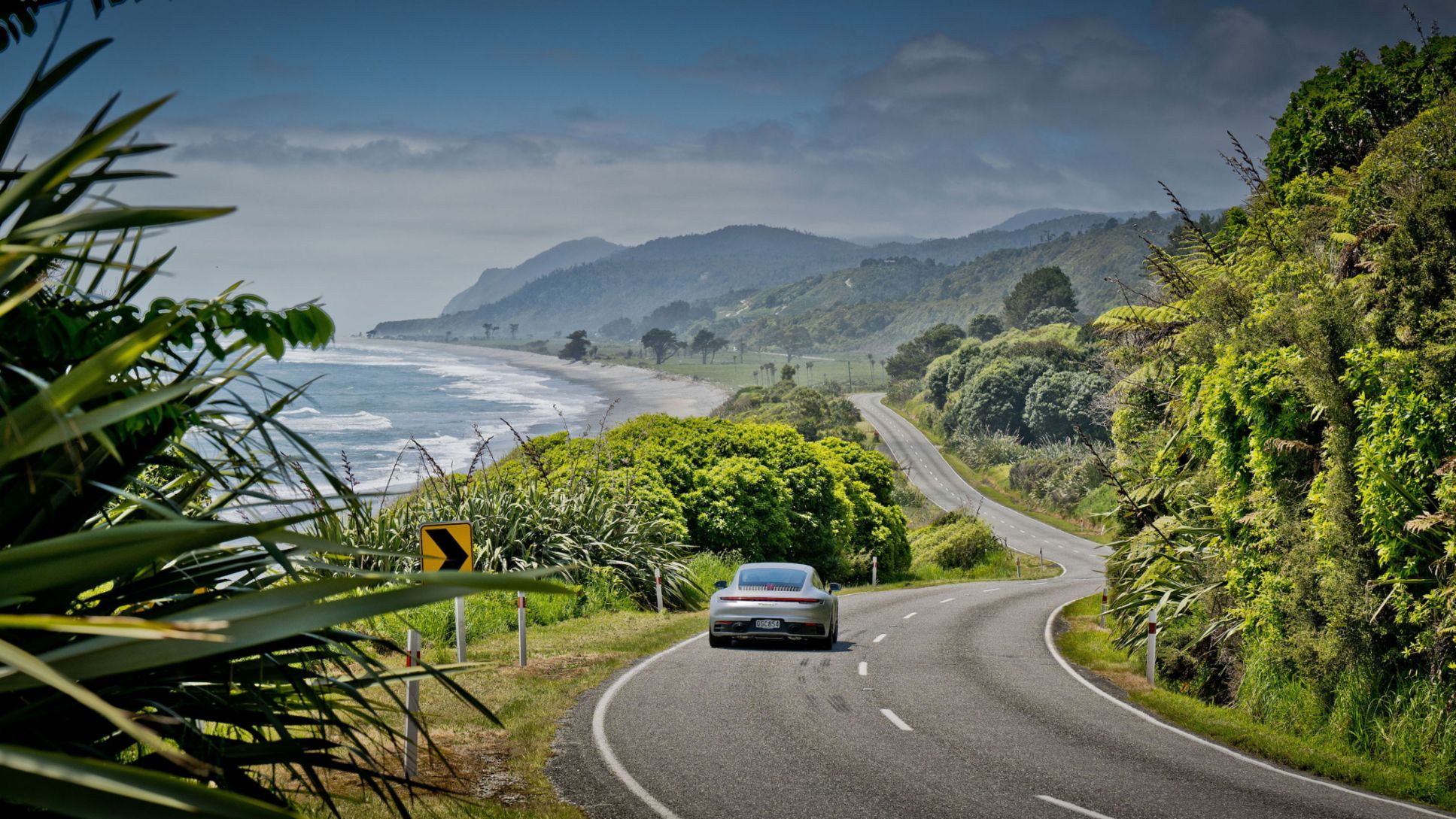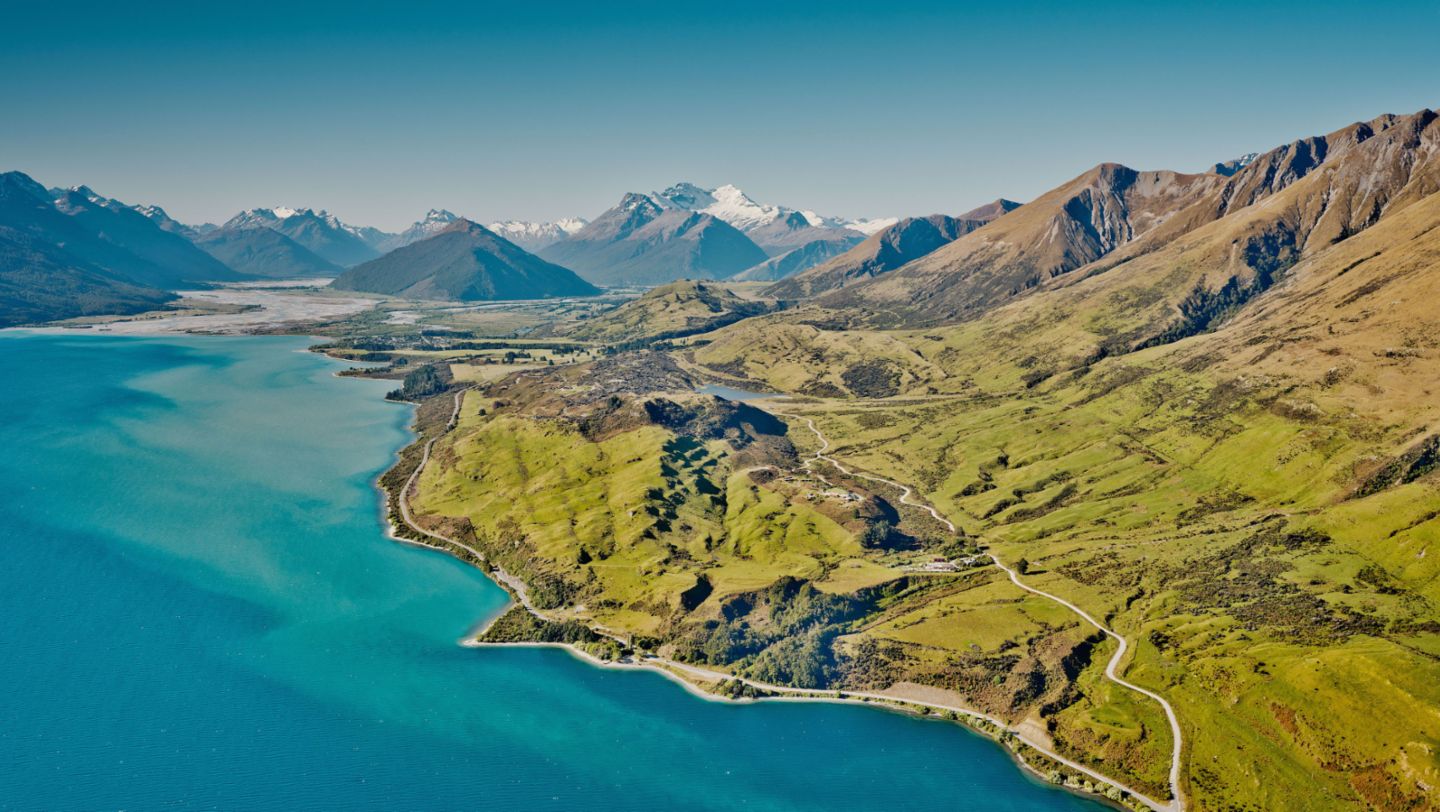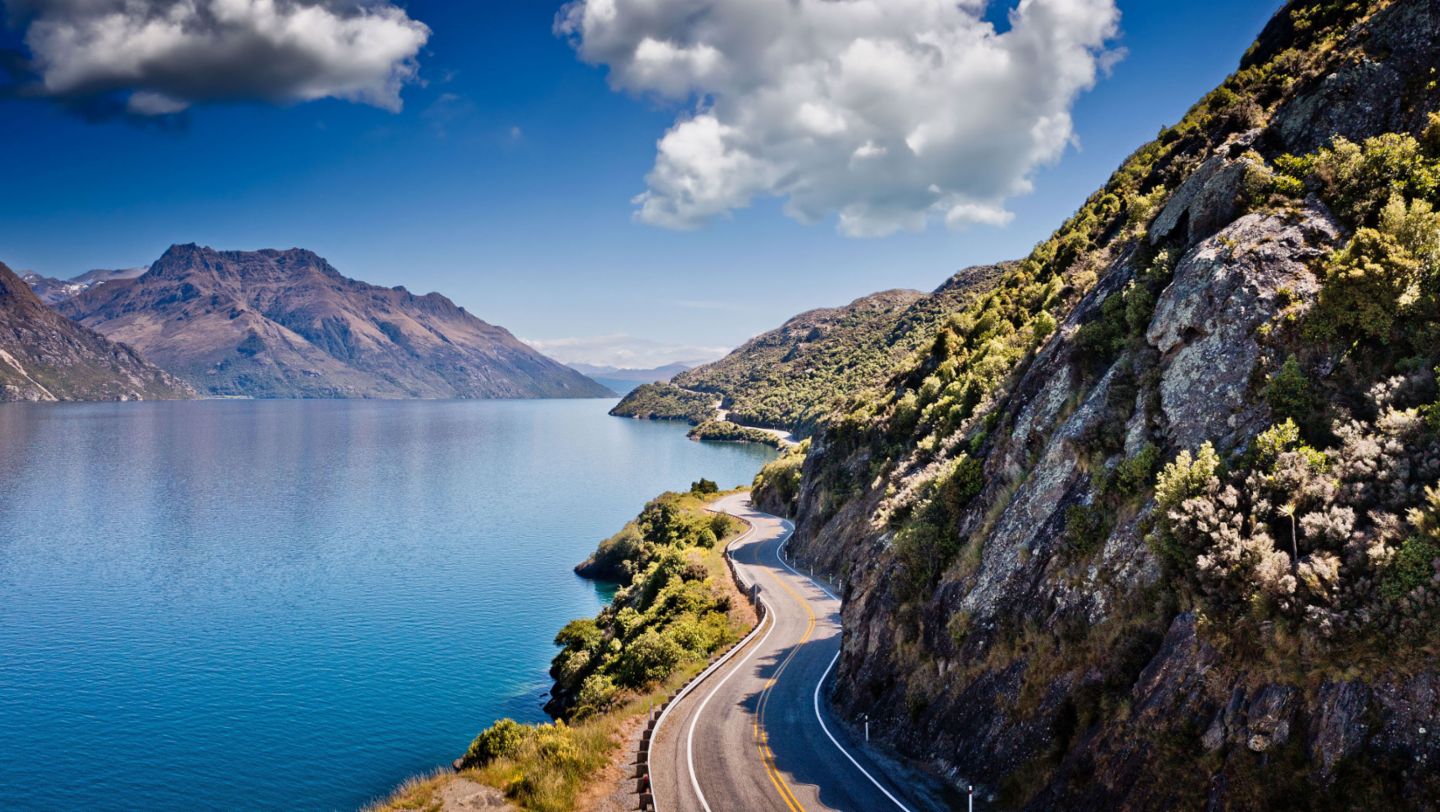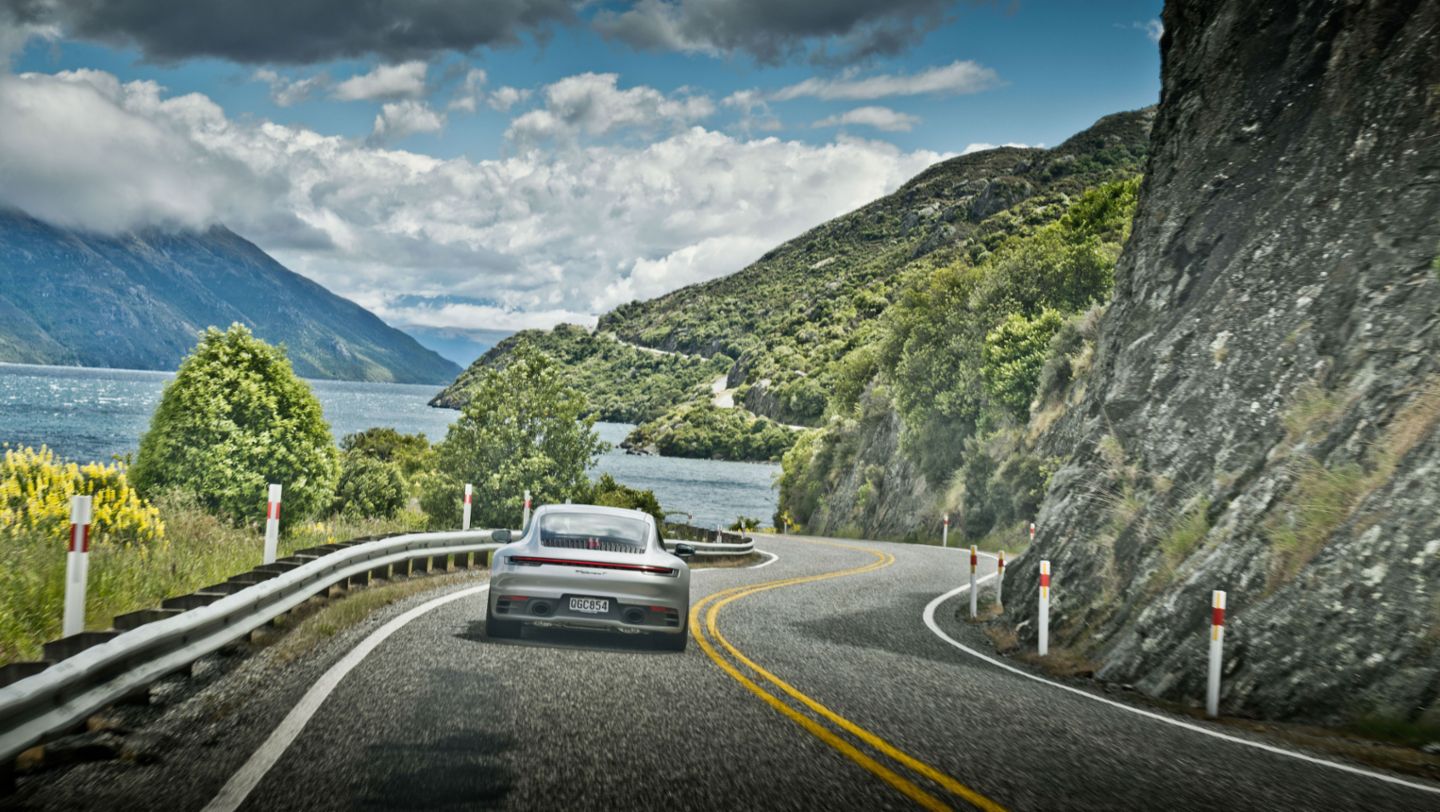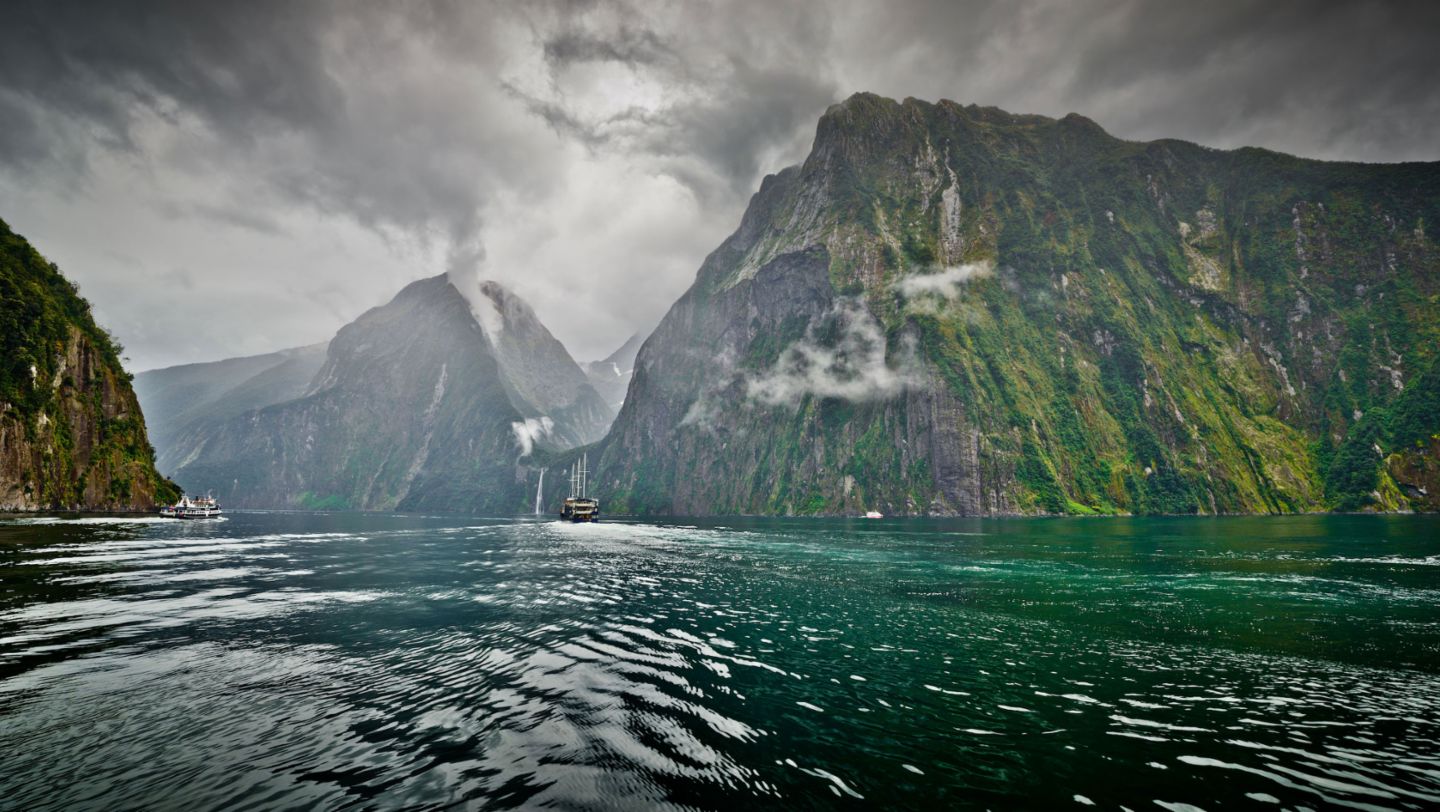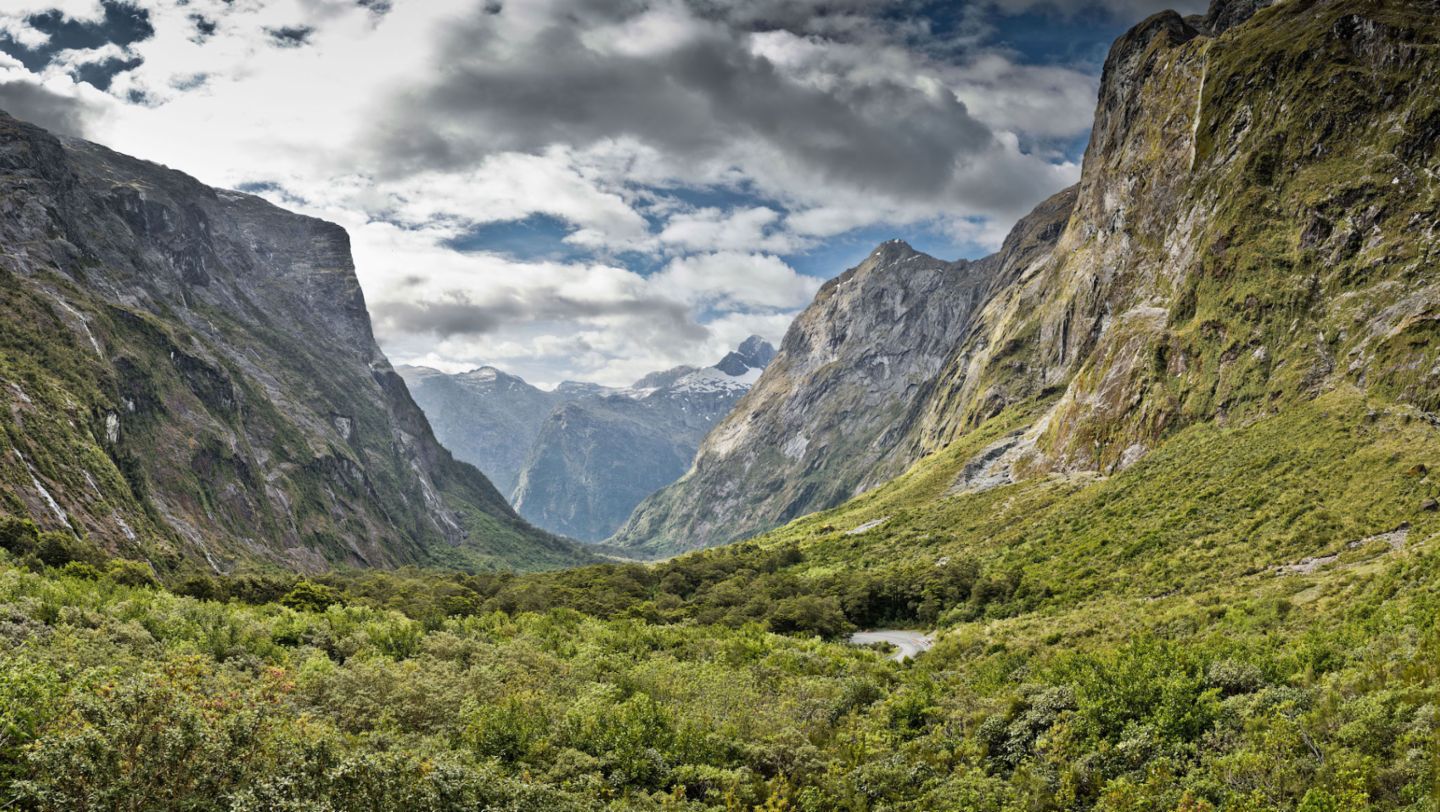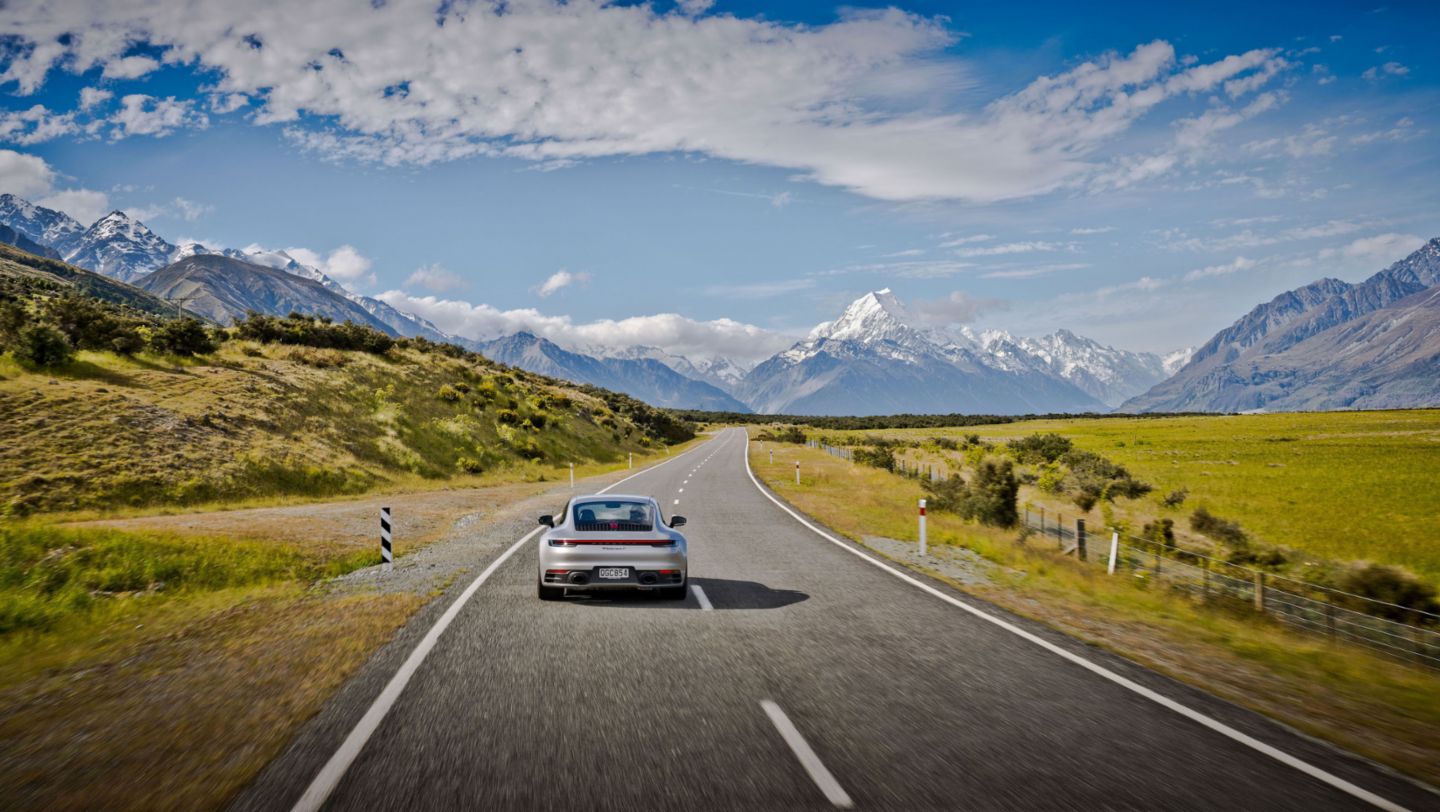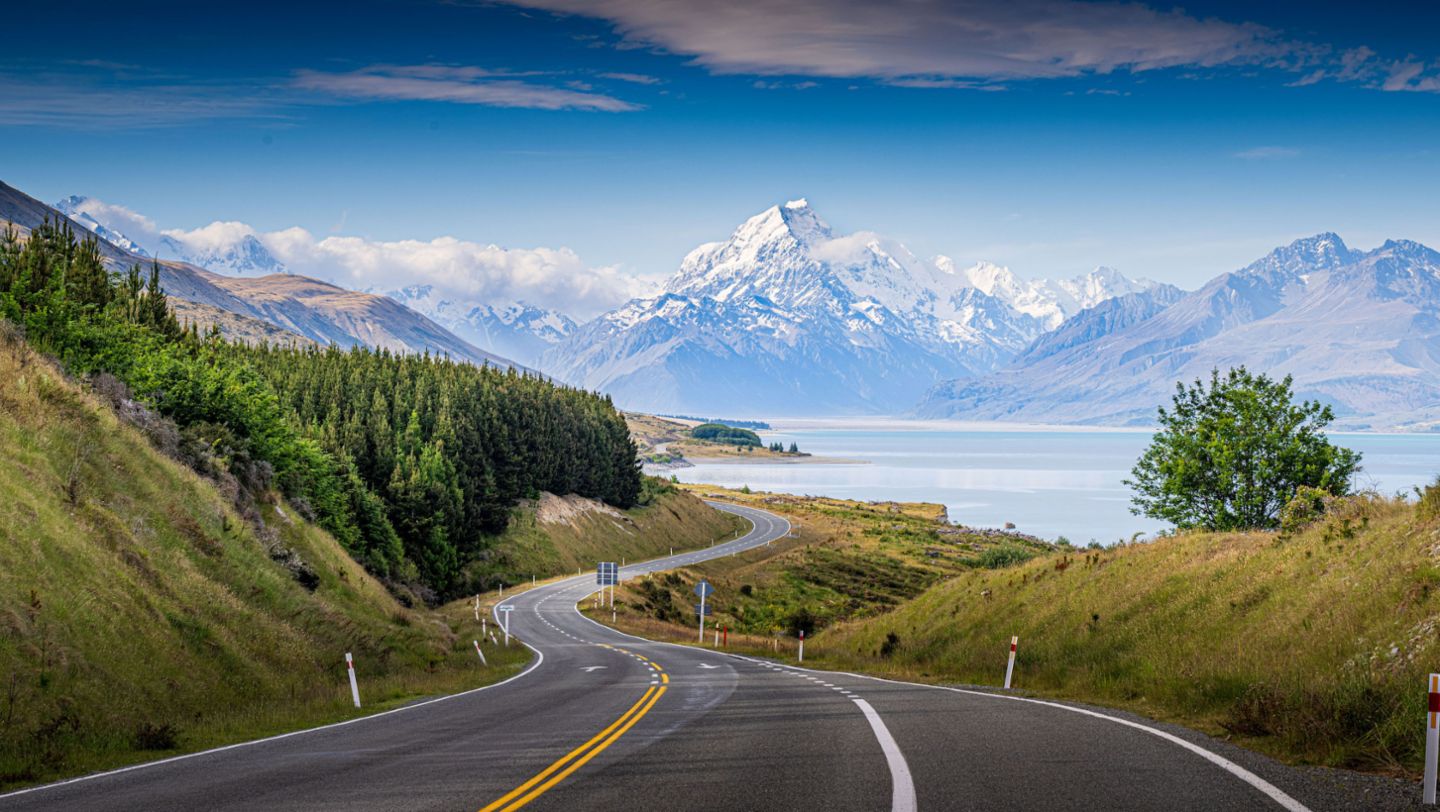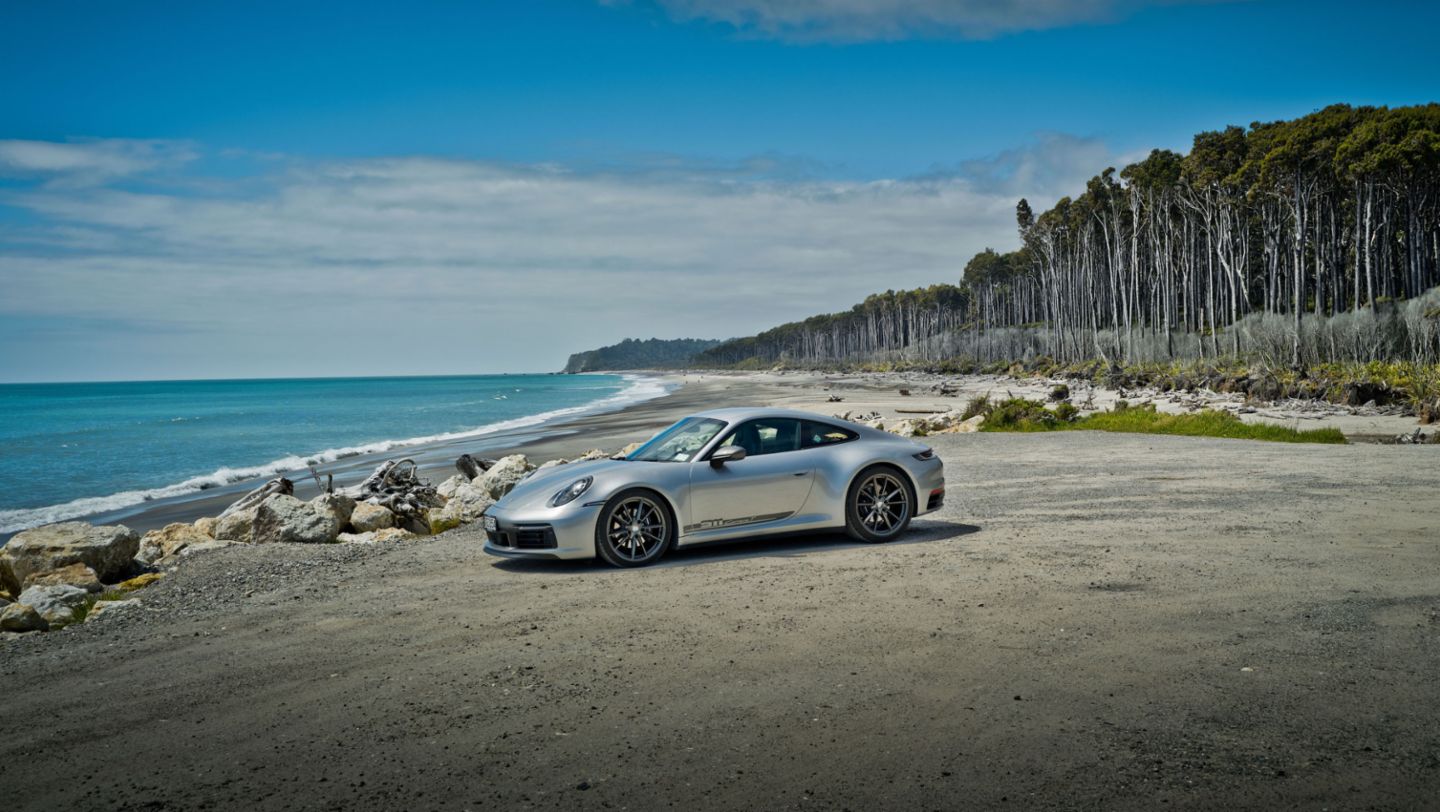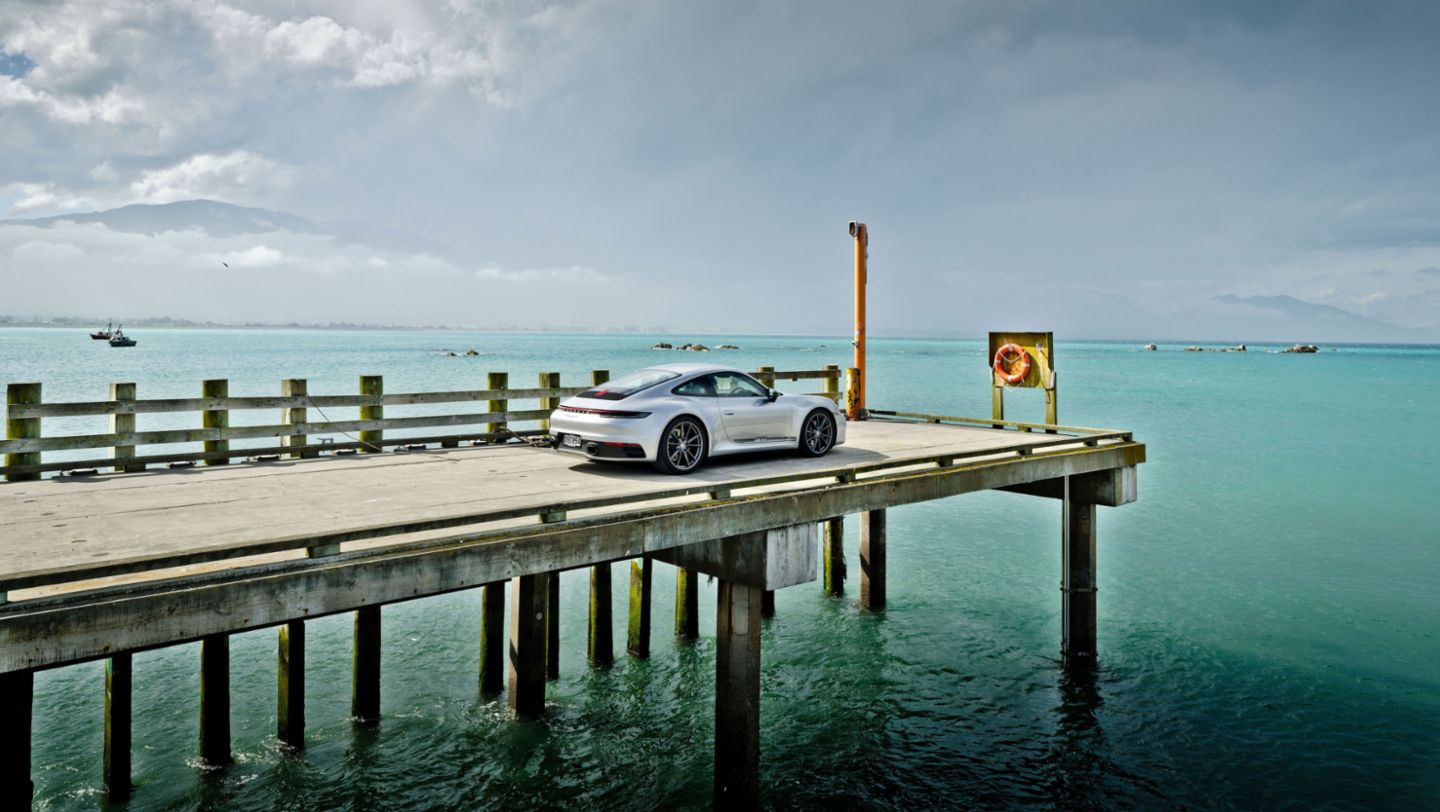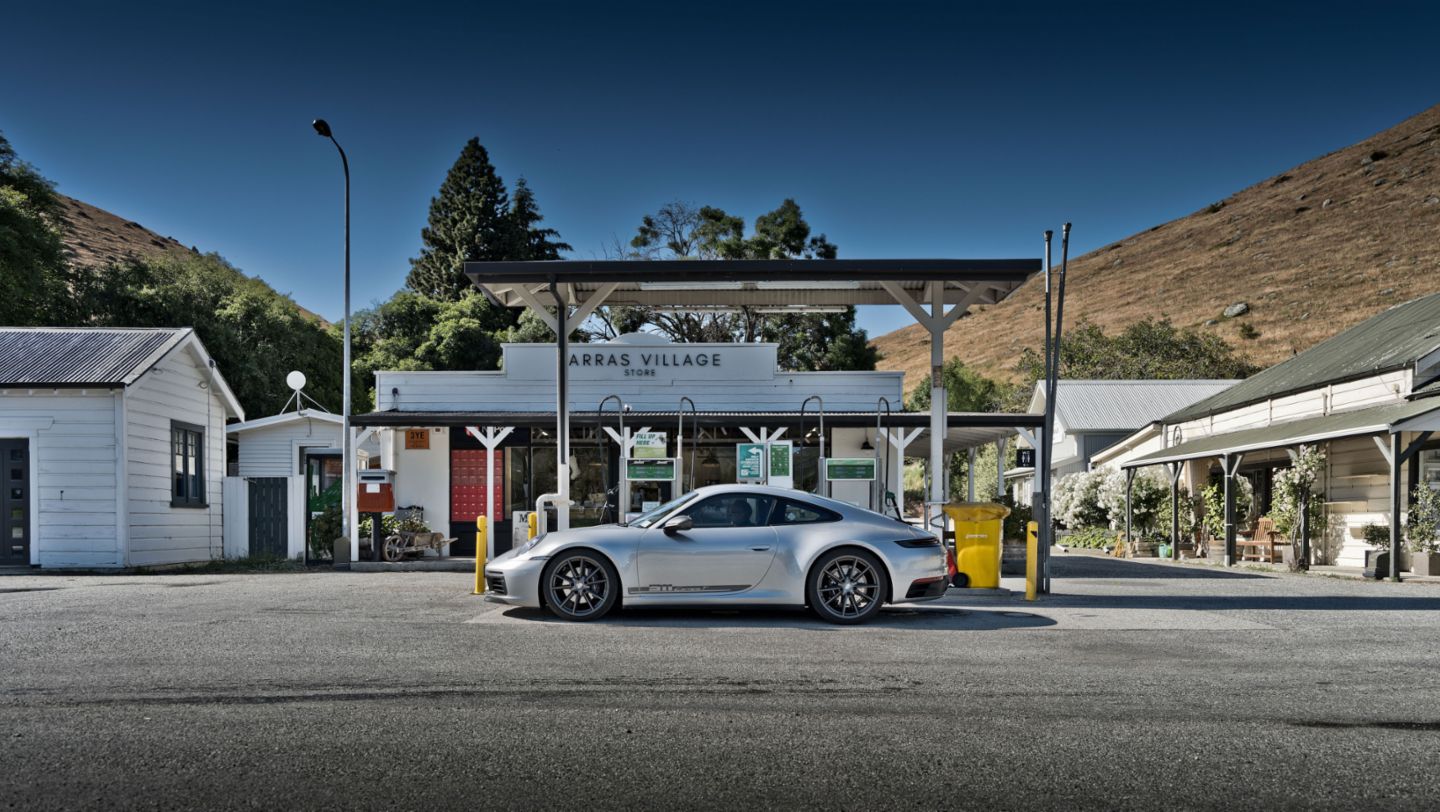A journey to the other side of the world – at least from the vantage point of Porsche’s headquarters in Stuttgart-Zuffenhausen. Photographer Stefan Bogner and his team ventured out once again to capture the joys of road tripping on the world’s most beautiful roads. The wanderlust must have been extraordinary ahead of this latest edition: this time the journey took the team more than 18,000 kilometres away, to New Zealand.
An evolutionary parallel universe
Anyone expecting a strange new world is in for a surprise: “Again and again, the landscapes reminded us of the European Alps, Scandinavia or Scotland, the south of France or the Ligurian northwest of Italy,” says Bogner, who admits being awestruck by the experience. The fact that Aotearoa – ‘the land of the long white cloud’ as it is known in the Māori language – conjures up memories of more familiar environs by no means suggests a humdrum experience. On the contrary: “What we experienced were drives in a setting of indescribable beauty,” says Bogner.
The fact that the islands of New Zealand have been somewhat protected from the evolutionary developments of the other continents for the past 85 million years has produced an extraordinary array of unique flora and fauna. New Zealand – much like other parts of the world with a similar background such as Australia and Madagascar – is an evolutionary parallel universe. “Plants that only exist in New Zealand blend with the familiar image of grasses, flowers, trees and shrubs to produce a colour that changes everything,” says Bogner.
Focused exclusively on the sparsely populated South Island
The culture today is predominantly Anglo-Saxon. Villages, names and the cuisine are reminiscent of New Zealand’s past as part of the British Empire. Yet the French influences of old, and the continued influence of Asia, are also perceptible and as much a part of the scene as the understated coolness of a country at the other side of the world. “In New Zealand, the pace of a world that feels to be spinning ever faster actually seems pleasantly distant,” says Bogner.
Speaking of speed and commotion: on their journey through New Zealand, the Curves team focused exclusively on the sparsely populated South Island. After all: “The fact that more than 80 per cent of New Zealanders live in large cities on the smaller North Island means that the most epic roads in New Zealand can be found on the sparsely populated South Island,” explains Bogner.
Porsche New Zealand provided the ultimate car for the trip – a Porsche 911 T, which was as perfectly suited to the long stretches in ‘the land of the long white cloud’ as it was to the switchbacks of the mountains and the curves along the coast. As the quintessential embodiment of an iconic Porsche sports car, the 911 T is the perfect road trip companion. “It’s not an over-the-top thrill-seeker or scene-stealer that overwhelms the beauty of the trip and the landscape,” says Bogner, “but an intrepid automotive mate with whom the trip is more intense, powerful and real in every way.”
Info
Curves New Zealand is available in stores now.
